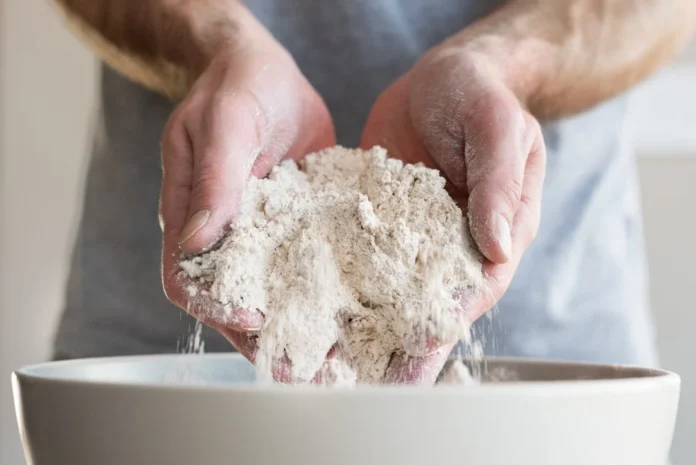Storing flour in the refrigerator may seem like a good way to keep it fresh, but it can actually lead to several issues, including bacterial growth, moisture absorption, and loss of quality. Here’s why you should avoid refrigerating flour:
1. Moisture Absorption and Clumping
Flour is highly absorbent, and the refrigerator has a high moisture content. When flour is stored in a cold environment, it can absorb moisture, leading to clumping. This creates an ideal environment for mold and bacterial growth.
2. Bacterial Growth and Contamination
- The refrigerator is home to many bacteria from various food items. Flour, being a dry substance, can attract bacteria when exposed to moisture.
- Condensation inside the container can lead to the growth of harmful microbes, which can contaminate the flour.
- Some bacteria thrive in a cold environment, increasing the risk of spoilage.
3. Loss of Nutritional Value and Taste
- Flour can absorb odors from other foods in the fridge, affecting its taste and freshness.
- Nutrients in whole wheat or multigrain flour, especially those containing natural oils, can break down faster in a cold and moist environment.
4. Mold and Fungal Growth
- If flour absorbs even a small amount of moisture, it can become a breeding ground for mold.
- Mold-infested flour can be harmful to health, leading to food poisoning and digestive problems.
Better Ways to Store Flour
- Keep it in an airtight container to prevent moisture and pests.
- Store in a cool, dry place like a pantry or cupboard.
- Use within the recommended period (whole wheat flour: 3–6 months; refined flour: up to a year).
- If you must store flour long-term, freezing in an airtight bag is a better option than refrigeration.
Conclusion
Storing flour in the refrigerator can lead to bacterial and mold growth due to moisture absorption. This can make your flour unsafe for consumption and impact the quality of bread and other food items made from it. It’s best to store flour in a dry, airtight container at room temperature to maintain its freshness and safety.



